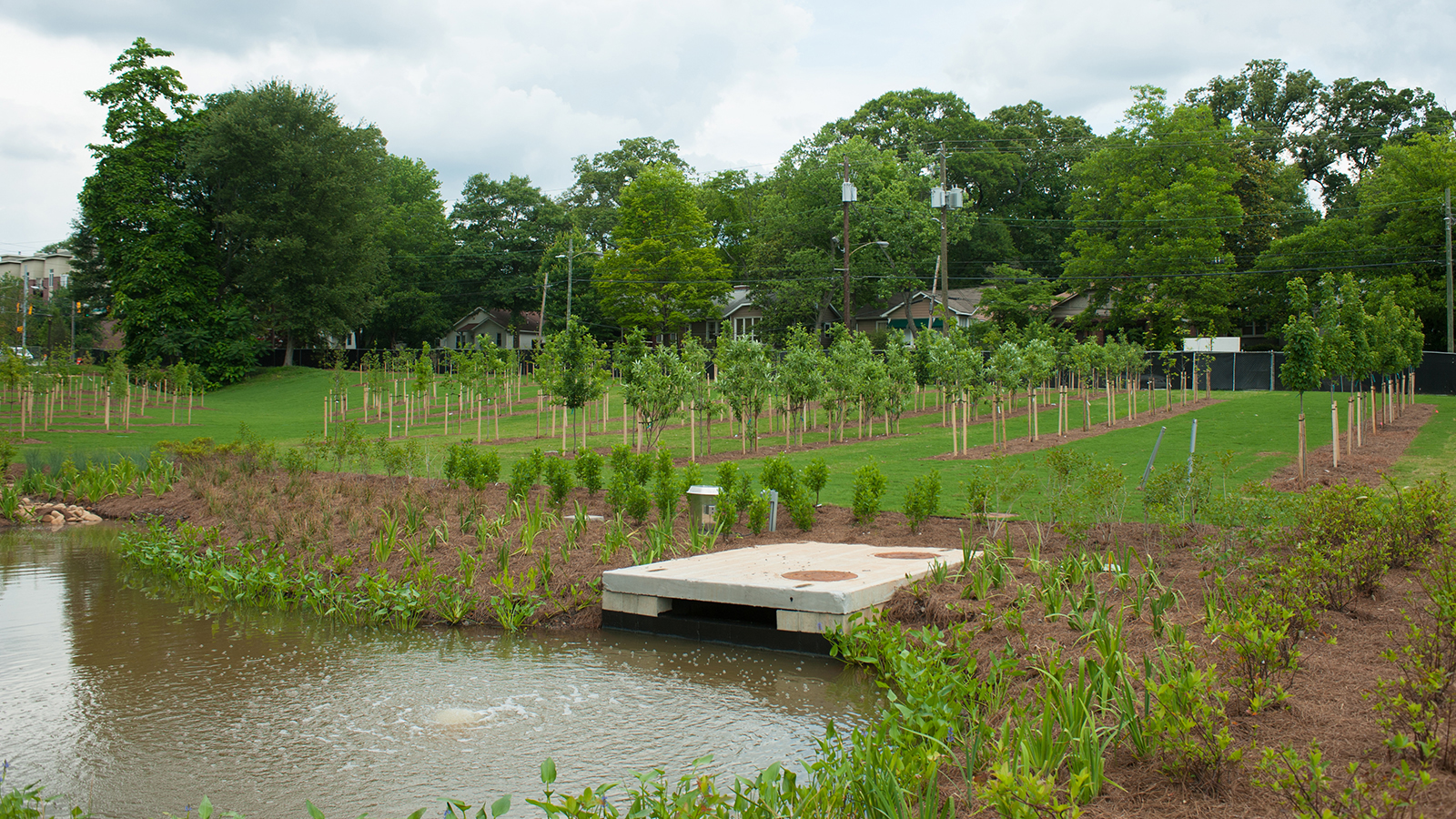
A commitment to responsible water usage is reflected throughout campus. From the laboratory to the dormitory, Georgia Tech makes a conscious effort to study and implement methods to conserve water.
Georgia Tech was an early adopter of water sustainability practices, conserving and capturing rainwater and condensate water through cisterns, rain gardens and xeriscaping, as well as installing low flow fixtures, as early as 1997.
Georgia Tech regularly uses reclaimed or recycled water to irrigate green spaces on campus. The term “reclaimed water” denotes that water has been treated and purified for reuse, rather than discharged into a body of water such as the sewer system. Georgia Tech reclaims rainwater, condensate, and water from several underground springs located across campus.
Students play an active role in water conservation efforts on campus and around the world. The Georgia Tech chapter of Engineers Without Borders, in partnership with the Georgia Tech Research Institute and Emory University, designs and installs wells and solar sanitation systems in remote places in Africa and South America. Other water research at Tech includes water purification, reduction of water volume usage, and the environmental impact of changes in ecosystems affected by water.
